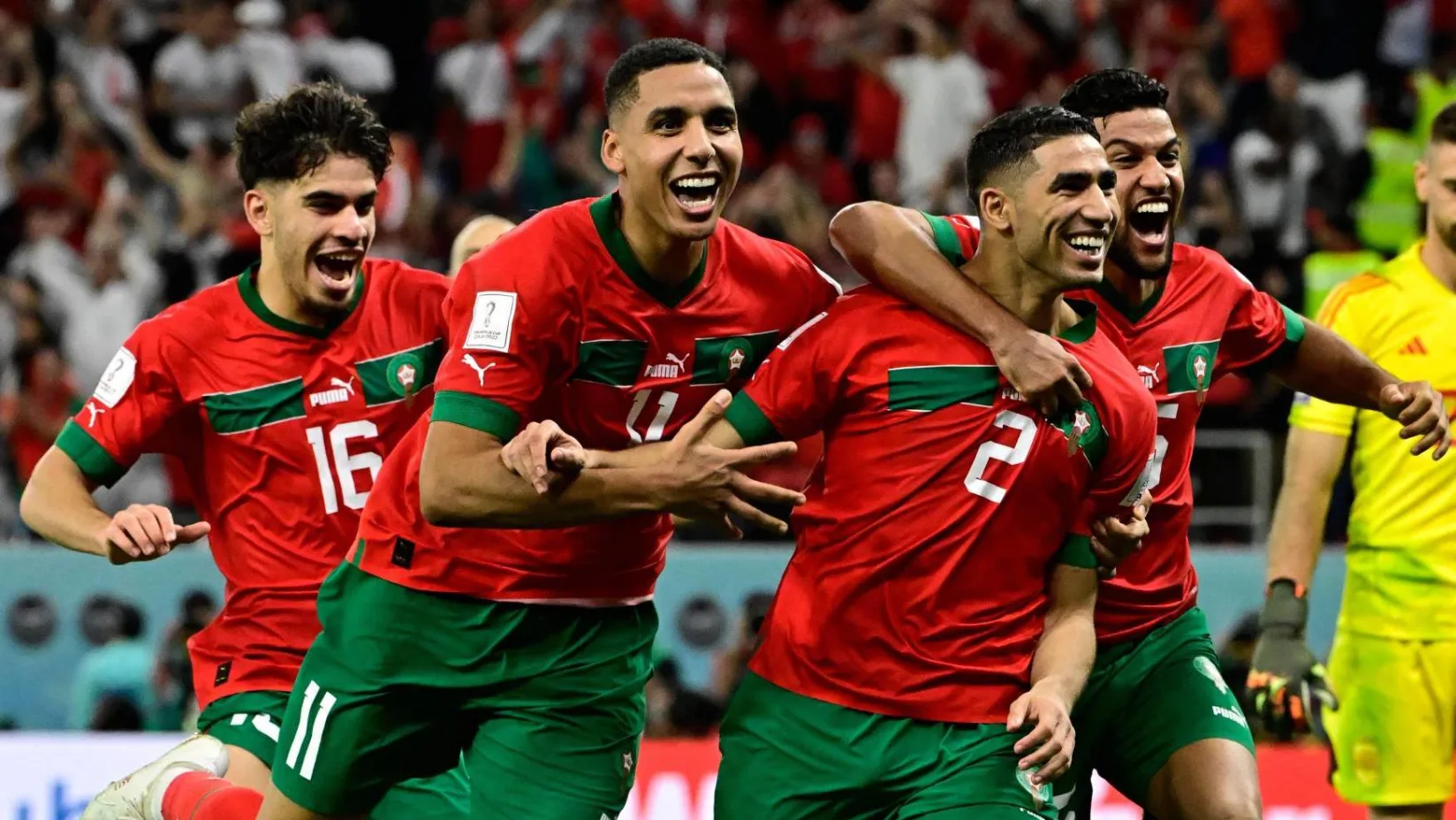
The last African world champions in Qatar played some top-class matches. Regularly, in friendly matches, they take on the scalps of soccer's greatest nations. On the continent, however, they win more laboriously against their African counterparts, or don't put on their best show. What are the reasons for this disparity?
It's a fact of life in African soccer. African teams are putting in outstanding performances against top European and South American teams. Countless examples can be cited. In order of achievement, there's Morocco's World Cup run, which saw them reach the semi-finals by beating Belgium in the group stage, Spain in the 8th and Portugal in the quarter-finals. Before being eliminated by France, whom they had dominated. Senegal also made it all the way to the last 8. Cameroon and Ghana also made honourable appearances, but were eliminated in the group stages without showing any demerit. Ghana played two of the best group matches of the World Cup against South Korea (won 3-2) and Portugal (lost 3-2), narrowly missing out on qualification.
Who doesn't remember the prolific draw between Cameroon and Serbia (3-3) and the Indomitable Lions' victory over the Seleção (1-0), or Tunisia's victory over France (1-0), admittedly against reshuffled teams, but against renowned players all the same? These performances are proof enough of the progress made by African soccer, which is now rivaling the world game. This is no longer a surprise. Further evidence of this is provided by Morocco's flawless 2-1 friendly win over Brazil this year, and Senegal's 4-2 victory over Brazil.
African teams, on the other hand, not so sovereign in Africa
But alongside these successful matches against the world's top nations, the continent's behemoths are suffering or showing signs of complacency in matches between African nations, those pitting the so-called tenors against teams reputed to be weaker on paper. The latest performances to support this hypothesis are Morocco's two matches. The Atlas Lions lost to South Africa 2-1 in the CAN qualifiers and drew 0-0 with Cape Verde in a friendly. The contrast between Senegal's performance against Benin (0-0) and that against Brazil 3 days later (4-2) is striking, even if it could be argued that Senegal had already qualified for the AFCON.
Many Senegalese fans have admitted that they have never seen Ismaïla Sarr work so hard, or a team so united defensively and offensively, as they did against Brazil.
For Senegal, there is one irrefutable constant: the Lions are more at ease against non-African teams. Is it a problem of motivation or something else?
Ghana, Cameroon, Tunisia to confirm the rule... The Indomitable Lions are in an uncomfortable position in the AFCON qualifiers. They are in 2nd place (4 points from 3 games) with one match to go, and run the risk of failing to qualify. This would be an earthquake, especially in the face of Burundi (3rd, 4 points, 3 games) and Namibia (1st, 5 points, 4 games), who are far from doing them any injustice.Defeat would eliminate them on the final day. These performances within the continent raise questions, if we compare them with those of the last Qatari World Cup.
What about the Ghanaians?
The Black Stars, who lead their group with 9 points after 5 rounds, are hot on the heels of Angola, who have the same number of points.In 3rd place is the Central African Republic (7 points). Ghana, who could have qualified on the final day, drew 0-0 with Madagascar. Their match against the Central African Republic at home will be a final. Defeat is out of the question, or you'll miss out on this celebration of African soccer. This sluggish qualification phase also raises questions in view of the World Cup in Ghana.
A syndrome that affects the great nations when faced with over-motivated teams
The performances of certain African teams against the "continent's minnows", as mentioned above, defy all logic. Could it be that these teams are over-motivated to play the big boys? That may be true. But there's bound to be a lack of motivation in some of them, too. The performances at the World Cup and in the qualifiers are at so many different levels. The commitment, whatever one may say, differs.
Some people, in order to clear their names, point to the quality of the pitches.
This was not the case for South Africa versus Morocco, to give just one example. And aren't pitches the same for everyone? In Africa, too, there are teams that play with a grouped defense. This is to be expected, given the stature of teams like Morocco, Senegal, Algeria and Nigeria. To put it bluntly, in Africa, the big boys have always had trouble assuming their status. Morocco was talking about establishing its supremacy on the continent. Since this declaration, this pious hope, the Moroccans and Regragui have come up against African realities. There's also the heat factor, often brandished to explain the irregularity of performances. Yet the Maghreb teams who dominate African soccer in interclub competitions seem to have come to terms with this, given their results at home and abroad.
The questions are many, the hypotheses just as many, and no one can find unanimous explanations for the contrasting faces of African world champions, whether in terms of results (Ghana, Cameroon) or content (Senegal, Morocco). In any case, the constant remains that African teams express themselves better outside the continent than within it. Those who believe in supernatural, irrational causes and the realities of the continent, as they put it, have plenty to ponder...